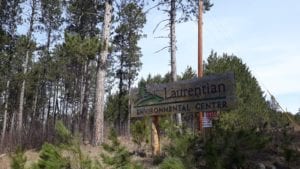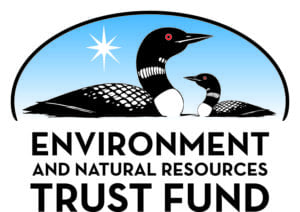Written by Sam Horner, Northeast Coordinator
When I was in 6th grade, I participated in a field trip to Long Lake Conservation Center. It did not have a reputation of being a fun trip, and most students did not look forward to attending. Mainly because we were not allowed to have any technology or video games and we were away from our families for a few days. Some of us had never done that before. I was one of the students that did not want to be away from my TV or other things, because it was so essential to my life at that time. However, being up at LLCC really opened my eyes to a new way of thinking. It was during this trip that I gained a new appreciation for nature and science. I can still remember the pine trees and how they smelled on the long hikes through the woods. The staff at LLCC presented their information in a way that was easy for me to understand, but they also made everything feel really fun. After this experience, I found a love for the outdoors that I had never had before.
This early experience is a part of why I am doing the work I do now at Laurentian Environmental Center (LEC).  I wanted to work somewhere that I would be able to inspire young people and help them appreciate the outdoors. YES! has given me the opportunity to do what I love, to help youth make connections to our natural world in fun and inspiring ways. I encourage youth to look at environmental problems in their schools and communities and to create solutions to fix them. The students complete the projects and they know they are doing something that is making our world a better place. Recently, I have been thinking more about climate change. In just a short time, I have seen winters that seem to become more sporadic and unpredictable. It is either so cold that we cannot do anything outdoors or it seems to be unseasonably mild. The milder winters allow ticks and insects to thrive, which is changing how people relate to the outdoors. Scientists have stated that we are experiencing 45 more bug days than we had in the past. Along with producing more insects, we are losing our pine trees, even in northern Minnesota. They are migrating farther north, because they need colder climates to survive. According to Lee Frelich, Director of the University of Minnesota’s Center for Forest Ecology “Minnesota’s forest cover could change rapidly in coming decades. The pines of the boreal forest in northeastern Minnesota are likely to recede north and perhaps disappear from the state entirely”… in the next 50 years, due to climate changes. This means that my beloved pine forest from my memories is no longer what I will experience in real life. I believe that if everyone works to make their lives a little greener, then we have a chance at making this world a better place. We all can play a role in this, and I am willing to do my part.
I wanted to work somewhere that I would be able to inspire young people and help them appreciate the outdoors. YES! has given me the opportunity to do what I love, to help youth make connections to our natural world in fun and inspiring ways. I encourage youth to look at environmental problems in their schools and communities and to create solutions to fix them. The students complete the projects and they know they are doing something that is making our world a better place. Recently, I have been thinking more about climate change. In just a short time, I have seen winters that seem to become more sporadic and unpredictable. It is either so cold that we cannot do anything outdoors or it seems to be unseasonably mild. The milder winters allow ticks and insects to thrive, which is changing how people relate to the outdoors. Scientists have stated that we are experiencing 45 more bug days than we had in the past. Along with producing more insects, we are losing our pine trees, even in northern Minnesota. They are migrating farther north, because they need colder climates to survive. According to Lee Frelich, Director of the University of Minnesota’s Center for Forest Ecology “Minnesota’s forest cover could change rapidly in coming decades. The pines of the boreal forest in northeastern Minnesota are likely to recede north and perhaps disappear from the state entirely”… in the next 50 years, due to climate changes. This means that my beloved pine forest from my memories is no longer what I will experience in real life. I believe that if everyone works to make their lives a little greener, then we have a chance at making this world a better place. We all can play a role in this, and I am willing to do my part.
YES! empowers youth to create solutions through hands on projects for ecological solutions. I work with teams of high school students to make their schools or communities a better place for the environment. YES! is important to me, because I believe that I am playing a role in students’ lives that I hope will stay with them for a lifetime. I have always been drawn to the energy and new perspectives that students bring. Sometimes as adults, we lose a part of our imagination, and we lose some of the passion behind that imagination. I believe that if we give young people a voice, then their ideas can help change the world.

Major funding for this project was provided by the Minnesota Environment and Natural Resources Trust Fund as recommended by the Legislative-Citizen Commission on Minnesota Resources (LCCMR).